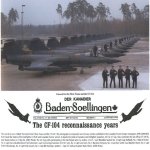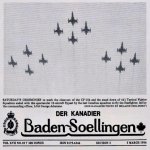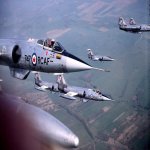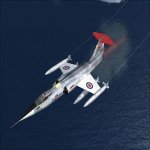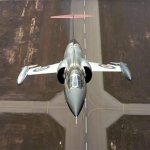Didn't they call it "the widow-maker"? And they weren't talking about the enemy.
It had a very mixed reputation. A lot depended on how it was used, and by whom. It was originally developed as a high altitude, high speed, daylight interceptor. Over time, it was shoe-horned into becoming a multi-role, day/night all weather fighter bomber. The West Germans had a lot of problems, more than most other nations. Their air force was just being reconstituted, and a lot of the pilots, and just as importantly ground crews, were WWII veterans who'd been in civvy jobs for the meantime. Take someone in their late teens, early 20's, who was Hot Stuff in and BF-109, have them cool their heals flopping around in Transit Busses of the Sky for airlines for a couple of decades, then shove them into a cutting edge bottle rocket like the F-104, and... Well, let's just say theat their acquired skills weren't a good match for the new airframe.
Then get them to fly low level high speed attack profile runs, in a plane that really wasn't designed for that envelope...
Well, bad things are going to happen.
Like a lot of aircraft, in capable hands, flying the profile it was designed to fly, it did well. But when maintained by insufficiently trained ground crews, flown by pilots raised on aircraft from a completely different era, flying a profile well outside of its design, it became a lawn dart.

















































